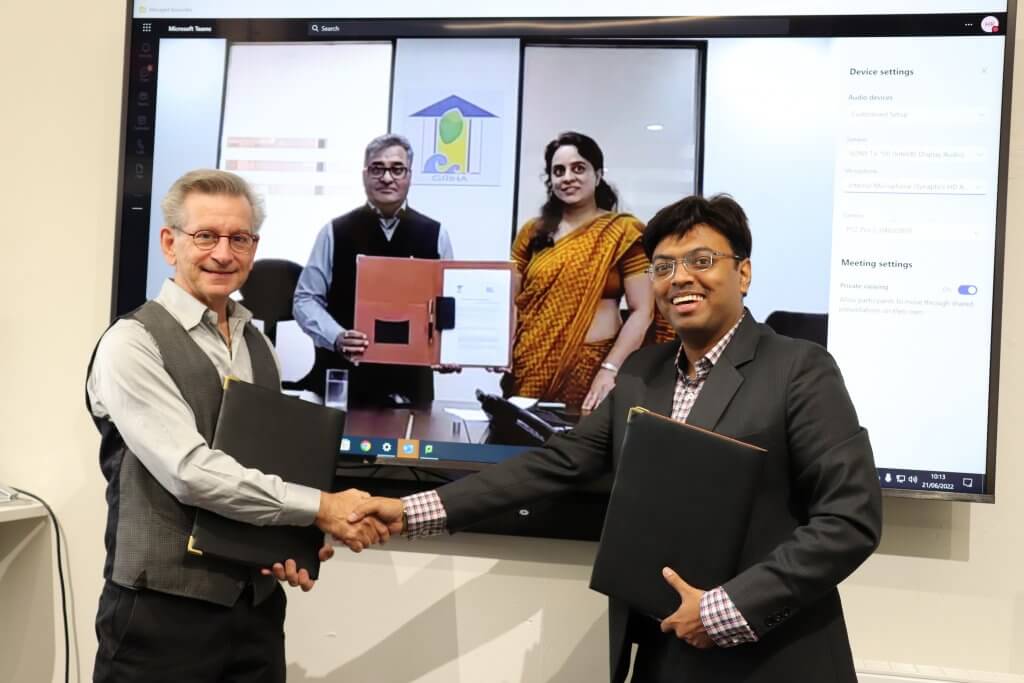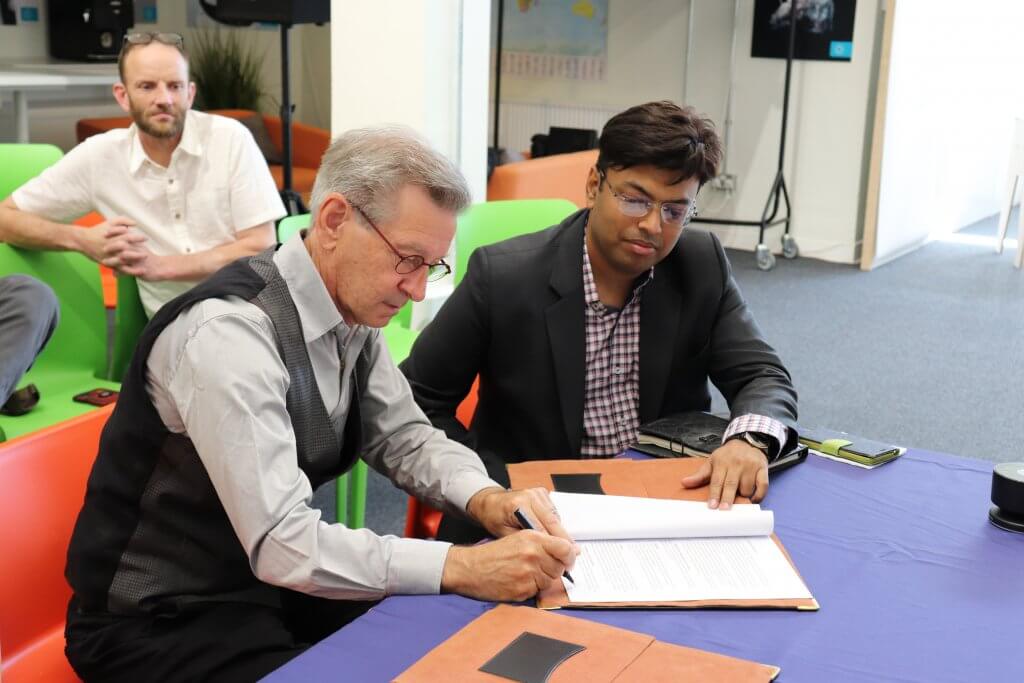30 Jun 2022
Representatives from Sheffield Hallam University and GRIHA Council, India’s national rating system for green buildings, signed an agreement formalising their proposed collaboration. This builds on four years of work Lab4Living on projects focussed on reducing ecological impact, including the Playponics low-cost playground system that harnesses energy to grow crops.
Prof Paul Chamberlain, Director of Lab4Living, and Akash Deep, Senior Programme manager at GRIHA Council signed the agreement during Lab4Living’s Festival of Design4Health. The agreement allows the two organisations to formalise their intention for international collaboration on projects which focus on improving quality of life in domestic spaces.

This agreement presents an opportunity to share and learn from each other. Important ground work has been established by Heath Reed (L4L) and Akash Deep (GRIHA) during the past few years working on an innovative children’s playground. The agreement will present opportunities to develop this work as well as explore new projects.
The agreement marks a commitment to formalise our collaboration and extend this across our team and the university. We jointly recognise the important issues of green design and sustainability to support global health and wellbeing.
Prof Paul Chamberlain, Director, Lab4Living

Lab4Living was pleased to welcome Mr Deep to the Festival to cement a relationship which was established during Heath Reed and Andy Stanton’s initial Lab4Living trip to India in 2019. The Festival’s four days of symposia included the launch of the Design4Health Global Network. Akash took part in the panel discussion at the Future Home Symposium.
For us to be partnering with such a prestigious organisation as GRIHA is a win for Sheffield Hallam University. We have a common goal in developing products, services and systems that enhance quality of life for populations.
Heath Reed, Principal Researcher at Lab4Living
Through its nationally approved rating system, GRIHA attempts to minimize a building’s resource consumption, waste generation, and overall ecological impact to within certain nationally acceptable limits. It takes a holistic view of supporting sustainable practices in construction.
GRIHA Council is concerned with the built environment and we are concerned with what goes on inside the built environment. This new relationship will enable us to explore some of the intersections between them.
Heath Reed
GRIHA has a track record in assessing buildings and environments at pre-construction, construction and maintenance phases on a large scale. The GRIHA rating system was developed by India’s The Energy and Resources Institute (TERI) which creates innovative solutions for a sustainable future. Lab4Living brings human centred design thinking and creative methods which can be used to identify and explore areas of unmet need. It is hoped that together the two organisations will be able to build networks and develop concepts in areas of mutual interest which can translate to real improvements in quality of life, sustainability and wellbeing.
Members of the Lab4Living team Heath Reed and Andy Stanton have been working on a range of projects in India over the last five years including Playponics sustainable play equipment. They have been exploring how ‘Jugaad’, a flexible approach to problem-solving with limited resources, can inform the development of assistive technology and renewable energy sources.
Playponics provides opportunity for people to connect with natural systems, and looks at how communities use their space and interact within them. The Playponics team, supported by India’s Energy and Resources Institute (TERI), set up an installation in December 2019, at the 11th GRIHA Summit ‘Approach to Integrated Sustainability’ in Delhi.
Related News
- ‘Playponics’ pilot playground installed in Uttar Pradesh, India
- Lab4Living on Tour! Our work in India
 to top
to top
